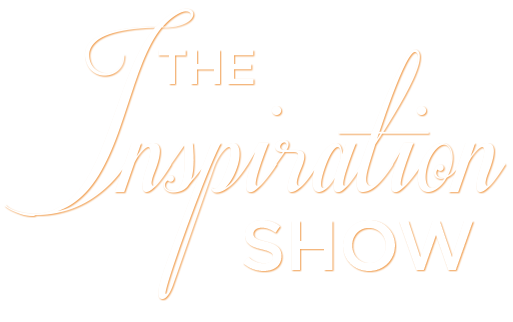
Natalie interviews personal development gurus and inspiring people from all over the globe on her super popular online show!

Natalie interviews personal development gurus and inspiring people from all over the globe on her super popular online show!
Join The Inspiration Community
& Receive a FREE copy of
MANIFESTING WITH THE MASTERS
Claim Your FREE Copy Of Manifesting With The Masters!

An inspiring 5-part video series featuring 5 of the world’s top Law of Attraction gurus!
You'll also periodically receive emails with inspirationals message, videos, interesting offers and cool freebies.
EPISODE TRANSCRIPTION
NL: Hi! My name is Natalie Ledwell and this is the Inspiration Show. Today on the show I have a very special guest who is coming to us all the way from Liberia and I’m really looking forward to sharing his story with you today. But before we do that I just want to make sure that once the show is finished make sure that you click the link below this video to download the free ebook version of my bestselling book, “Never In Your Wildest Dreams”. Now I want to introduce you to a very good friend of mine. His name is Jeremiah T. Burgess. Now, Jeremiah is a war survivor from Liberia and he has such a fascinating story, he actually reached out to me a couple of years ago through email when we heard about the children’s program that we were running in Colombia because he wanted to be able to create something similar in Liberia. So for 2 years, Jeremiah have had a great friendship over Skype. We’ve had amazing talks together, been sending him books, and he runs a school in Liberia, a vocational school. So this is for young adults who may have missed schooling so he’s teaching reading and writing skills but also vocational schools like plumbing, electricity, and so forth. So that people get prepared to go into the workforce. Now 2 of Jeremiah’s biggest supporters, financial supporters, actually pulled out of being able to support the school this year. So I’ve put together a very special project to help Jeremiah create the first self-sustaining school in Liberia. So let me just play this little video I recorded earlier and I’ll tell you more about that after the video.
Video Recording
JB: I’m Jeremiah T. Burgess. I’m a Liberian. I was born in Harper Maryland County which is in the southeastern part of Liberia. And in the latter part of 1999 when my uncle in the US, encouraged us to leave Liberia to go to Ghana and then be (inaudible) to get to the US. I sat US Immigration interview 2 times and now when I look back I see that they are there for special reasons. I’m grateful for that. So, then with the pressure now mounting as a result of failing the US Immigration, can’t come back home, can’t stay in Ghana and be of any use. We started drinking a lot, I started making friends and they were all like group of failures. So we sit down and just drink and drink and drink. But deep down in myself, there’s a question, “What can I do to be of use to society? How can I be useful? How can I come back and see my mom and be happy?” So one day, my uncle in the states sent some money. I got that money and my friends told me to go in the marketplace and find some food and eat and then look at something to wear and something to buy for myself. But as I was going through the market, I got to a place, looking from one place to the other, admiring a lot of things. I saw this bookshelf. I saw the bookshelf, something told me to go there and I moved to the bookshelf. When I got to the place, the book that really stared at me was Think and Grow Rich. So I was able to buy that. I bought the book and I started reading the book. And from that book, I started to see a number of things. And assumed a lot of the questions that I will face will have been addressed by reading that book.
NL: So let’s talk about the school. So the school is teaching adults to read, it’s vocational so it’s actually getting adults prepared to go to work. Your vision, I mean you have the elementary school now, but you also have the vision to go into high school. And even with that it’s not just learning how to read and write and the usual school work but it’s also teaching them vocational skills as well so that they are also ready to go into the workforce. And on top of all of that, you’re also teaching personal development. So that you’re getting their mindset right for them to be able to live a really happy and fulfilled and successful life.
JB: Yeah. Our big vision is to create a training institution. A training institute. That the idea we want to do and we want a place wherein the young people can come and get refreshed intellectually and get vocational skills. They learn whatever they want to learn and they find it comfortable in getting new ideas and who can face.. in their face and tell them where we went wrong as adults. And what they need to know to be prepare themselves for the future. And one interesting thing that I didn’t tell you, one time I was sitting before my house reading Think and Grow Rich, the 65th-anniversary edition, that’s what I was reading. And then it popped in my mind that while in Ghana in 2005, I wrote some goals down in my diary. And those goals, when I started going over them realized that a lot of what I am currently doing was a lot of what I wrote down before. So it gripped me and said “this stuff works” It’s working. So now I made a commitment that now that we’re building a school am I still going to be the same old Jeremiah? And what message am I going to give to adults who are coming to the school. People can go to other place and acquire vocational skills or whatever skills they want to get. But what makes them different from our school and the other schools. There I think the issue of mind transformation really comes in.
NL: And the agricultural program that we are looking to help you implement is going to make your school the first self-sustaining school in Liberia, right?
JB: Yeah, that’s the goal, that’s the idea. Show it we can do. And one thing we also cannot look more to, we have to grow the food, we want to be a training institution. So where good land, where we can plant food, especially soon without interest in going in the cassava value chain canning industry. Plant cassava, work with the fisher, work with and in a different kind of thing, we have the chicken, the piggery. We also have a small piggery here already. So in the discussion we’ve talked about the agribusiness, we’ve talked about the poultry, the piggery, the fishery, and all of that. But I also see that when we grow food, one problem here with agriculture is that people grow food but and to take it from that, and roast it to add value and be able to reach it to the commercial level to sell and get more money, no, that path is lost. So the plant facility, it gets spoiled so we thought that if we can move into having them plant and pull up a small manufacturing facility like a cassava grinding machine that can help to grind cassava and get it in to the foreign estate and mix it with sugar, milk, and other things that kids can easily get. And that is one to take us to a different level. And that will encourage people around here to grow more cassava, maybe grow more plantain, whatever they can grow can be worked here, preserved, package and have on the market for them to make more money. And I think there is going to be a huge percentage of sustainability from that end. So that’s what really I am looking at.
NL: Yeah. So what I hear you saying is you’re not just going to be a model or an example for your community but also an example for other schools so that they can use it and throughout Liberia.
JB: Yeah. That’s what we want.
NL: Our story of how we got connected, I know that you reached out to me through email. And I’m not sure why I reached back because I don’t normally reach back to everyone that reaches out. But we’ve had a relationship now for a couple of years and every time I get a moment to speak with you on skype, I always feel like I leave our conversations resonating at a much higher frequency and I’m so happy that we got to be connected and that we get to help with the creating a sustainable and amazing school for you.
JB: Yeah. I clicked on one of your videos and I saw Joe Vitale and T. Harv Eker. This is working, and here you are talking about coming to Liberia. This is something I’ve been really dreaming about. And I think personal development it will get a hold on it and get a ground in Liberia and it will rise again. I’m actually convinced about that.
NL: Yeah. Well I am really looking forward to meeting you in person in October when we go. It’s going to be so much fun and great to finally meet you in person. So Jeremiah, thank you for your time and we look forward to seeing you very soon.
JB: Me too. Thank you so much. I appreciate it.
End of Recording
NL: Isn’t he amazing? Such an aware and insightful soul. He was doing some really incredible work. So I want to encourage you to click on either the banner to the side or the link underneath here to go through to the GoFundMe page that we’ve set up for Jeremiah and his school. Through there you can make a donation and any kind of donation of any level is going to be helpful. And once you do that we will keep you up to date with all of the steps that we’re going through with the implementation of the agriculture program that we are implementing. And how it’s really helping Jeremiah and his school become an empowering example for their community and for other schools in Liberia. Now what you should also know is that Jeremiah is a doer. He’s already started to implement the first levels of this agricultural program without waiting for funds because he can see how important it is for them to become self-sustaining so they’ll no longer need handouts. So please click on the banner to the side or the link underneath to go directly through their gofundme page and please anything that you can donate will help. And don’t forget that after you’ve done that, if you come back and click the link underneath that you can download the free ebook version of my bestselling book “Never In Your Wildest Dreams”. So until next time, remember to live large, choose courageously, and love without limits. We’ll see you soon.